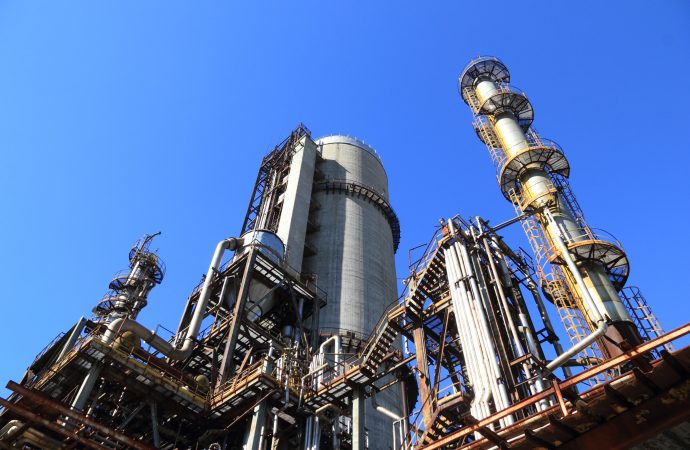The energy industry has seen a noticeable spike in profits in recent years, but this has not been accompanied by a decrease in methane emissions. In fact, according to the International Energy Agency’s (IEA) latest report, the energy industry continues to be one of the largest contributors when it comes to global methane emissions. Methane
The energy industry has seen a noticeable spike in profits in recent years, but this has not been accompanied by a decrease in methane emissions. In fact, according to the International Energy Agency’s (IEA) latest report, the energy industry continues to be one of the largest contributors when it comes to global methane emissions. Methane is a powerful greenhouse gas that is estimated to be 80 times stronger than carbon dioxide over a 20-year period. This means that any progress made in curbing carbon emissions could be reversed if we don’t take steps to reduce our methanemissions as well. In this blog post, we’ll explore why the energy industry has failed to curb methane emissions and what can be done about it going forward.
Executive Summary
Despite the booming profits of the energy industry, a new report from the International Energy Agency (IEA) has found that methane emissions from the sector are still on the rise.
The IEA report, released today, found that methane emissions from the energy sector rose by 3.5% in 2018, to a total of 790 million tonnes. This increase is equivalent to the annual greenhouse gas emissions of Japan and Germany combined.
Methane is a powerful greenhouse gas, with a global warming potential of 84 times that of carbon dioxide over a 20-year period. The vast majority of methane emissions from the energy sector come from coal mining and natural gas production.
The IEA report blames the rise in methane emissions on insufficient regulation and enforcement, as well as a lack of voluntary action by companies to reduce their emissions. It notes that while many countries have introduced regulations to limit methane emissions, these are often not being properly enforced.
In order to meet its climate goals, the IEA says that the energy sector must take urgent action to reduce its methane emissions. This includes strengthened regulation and enforcement, as well as voluntary action by companies to reduce their own emissions.
IEA Report Highlights
The IEA report found that while profits for the energy industry have been booming, methane emissions have continued to rise. This is in part due to the growing production of natural gas, which is often associated with methane leaks. The IEA estimates that the energy industry is responsible for about 30% of all anthropogenic methane emissions.
The report highlights a number of ways in which the industry could reduce its methane emissions, including better monitoring and reporting of leaks, investing in new technologies to reduce leaks, and improving operational practices. However, the IEA notes that these measures will not be enough on their own – government regulations will also be needed to ensure that companies take action to reduce their methane emissions.
The Oil & Gas Industry’s Response
The oil and gas industry has come under fire in recent years for its failure to curb methane emissions. A new report from the International Energy Agency (IEA) finds that despite booming profits, the industry has made little progress in reducing methane emissions.
The report, which was released today, found that global methane emissions from the oil and gas industry increased by 3.5% between 2010 and 2015. This is equivalent to the annual greenhouse gas emissions of France.
The IEA attributes this increase to the growing production of natural gas, which is more methane-intensive than other fossil fuels. The agency also points to a lack of regulation and voluntary action by the industry as key factors contributing to the increase in emissions.
In response to the report, environmentalists are calling on governments to put pressure on the oil and gas industry to reduce methane emissions. They argue that regulations are necessary in order to force companies to take action on this issue.
The Way Forward
The oil and gas industry is facing a growing methane problem. Despite being one of the most profitable industries in the world, it has failed to curb its methane emissions, according to a new report from the International Energy Agency (IEA).
The IEA’s World Energy Outlook 2019 says that methane emissions from the oil and gas sector have increased by 10% since 2010, and are now equivalent to the annual emissions of Japan. The rise is due to the growing production of natural gas, which is mostly methane.
Methane is a potent greenhouse gas, with a global warming potential of 28-36 times that of carbon dioxide over a 100-year time frame. So, even though methane makes up only around 10% of all human-caused greenhouse gas emissions, it accounts for around 25% of the current warming effect on Earth.
The IEA report says that the increase in methane emissions is “highly worrying” because it undermines the efforts to combat climate change. It calls for an urgent need for action to reduce these emissions.
One way to reduce methane emissions is to capture and flared off the gas before it escapes into the atmosphere. However, this is expensive and technically challenging, so it’s not widely used. The IEA estimates that less than 2% of all natural gas produced globally is currently flared in this way.
Another way to reduce methane emissions is through leak detection and repair programs. These programs can identify and fix leaks in pipelines and
Conclusion
The IEA’s report on methane emissions within the energy industry reveals a deep-seated problem that needs to be addressed. Despite booming profits, the industry has failed to curb methane emission levels, resulting in higher global temperatures and more extreme weather events. If we want to make sure our planet remains livable for future generations, governments must step up and ensure that detailed policies are put in place which will lead to reduced emissions of this potent greenhouse gas.





















Leave a Comment
Your email address will not be published. Required fields are marked with *